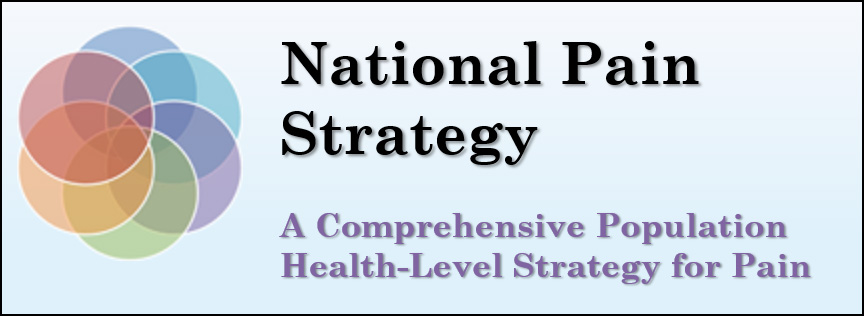NIH launched the HEAL (Helping to End Addiction Long-termSM) Initiative in April 2018, an aggressive, trans-agency effort to speed scientific solutions to stem the national opioid public health crisis. This Initiative builds on extensive, well-established NIH research, much of it supported by NIDA, including basic science of the complex neurological pathways involved in pain and addiction, implementation science to develop and test treatment models, and research to integrate behavioral interventions with medications for opioid use disorder. A few of the NIDA-supported research successes that are playing a pivotal role in this initiative include the development of the nasal form of naloxone (NARCAN), the most commonly used nasal spray for reversing opioid overdose, and the development of buprenorphine for the treatment of OUD.
NIDA is also coordinating several key HEAL Initiative research projects:
- Enhancing the NIDA Clinical Trials Network to Address Opioids
- Focusing Medication Development to Treat Opioid Use Disorder and Prevent/Reverse Overdose
- HEALing Communities Study
- Justice Community Opioid Innovation Network
- Preventing At-Risk Adolescents Transitioning into Adulthood from Developing Opioid Use Disorder
- Managing Opioid Misuse and Low-Severity Opioid Use Disorder
- HEALthy Brain and Child Development Study
Separate from HEAL, but still an important focus of NIH-supported research for safe opioid use, is ensuring people with pain conditions receive safe and effective treatments to help them recover and manage their pain effectively. Now you have an opportunity to inform how people with chronic pain receive care. Chronic pain affects about 100 million American adults and costs the nation up to $635 billion each year in medical treatment and lost productivity. Individuals managing chronic pain are at increased risk for developing substance use disorders if they do not adhere to their treatment plans as prescribed. The National Pain Strategy identified a need to educate health care professionals on pain, pain treatment, opioid misuse, and opioid use disorders. Now NIH is seeking your thoughts about how health care students and professionals receive training in pain, pain treatment, opioid use and misuse; and what the highest priority needs are for training and infrastructure to support health care professionals as they care for people managing all forms of pain. In particular, this Request for Information (NOT-DA-19-054) seeks input from health care professionals providing pain treatment, students in medical, dental, pharmacy, physical therapy and nursing schools, residents, fellows, teaching faculty, medical associations, physical therapy and occupational therapy associations and education accrediting agencies, among others. Responses should be sent to paineducation@nih.gov by September 1, 2019.
Did you know?
The Early Career Reviewer (ECR) program in the Center for Scientific Review (CSR) aims to train and educate qualified scientists without prior CSR review experience. The program gives researchers additional exposure to the peer review system and enriches the existing body of reviewers. If you are an early career investigator, this is a wonderful opportunity to not only gain invaluable insight from the point of view of the peer review panel, but it may also help you personally develop more competitive applications with the experience you gain. Applicants must have at least two years of experience as full-time faculty or in similar research roles. More information on the program and eligibility can be found here (NOT-OD-19-109).
Policy Updates
Individuals supported by research training, fellowship, research education, and career development awards will be required to have ORCID iDs (Open Researcher and Contributor Identifiers) beginning in FY 2020. ORCID iDs are digital identifiers that can be used to connect researchers with their contributions to science over time and across changes of name, location, and institutional affiliation. NIH has given the option for PD/PIs to enter an ORCID iD in ERA Commons since 2017 and will begin requiring it for training, fellowship, research education, and career development awards in FY2020. More information can be found here (NOT-OD-19-109).
Funding Opportunities
Predoctoral Training
- Ruth L. Kirschstein National Research Service Award (NRSA) Individual Predoctoral Fellowship to Promote Diversity in Health-Related Research (F31-Diversity) PA-19-196
- NIH Blueprint Diversity Specialized Predoctoral to Postdoctoral Advancement in Neuroscience (D-SPAN) Award (F99/K00) RFA-NS-19-011
- Drug Abuse Dissertation Research (R36) PA-16-443
Postdoctoral Training
- BRAIN Initiative Advanced Postdoctoral Career Transition Award to Promote Diversity (K99/R00 Clinical Trial Required) PAR-18-813
- BRAIN Initiative Advanced Postdoctoral Career Transition Award to Promote Diversity (K99/R00 Independent Clinical Trial Not Allowed) PAR-18-814
- Pathway to Independence Award in Tobacco Regulatory Research (K99/R00 - Independent Clinical Trial Required) RFA-OD-18-008
- Pathway to Independence Award in Tobacco Regulatory Research (K99/R00 - Independent Clinical Trial Not Allowed) RFA-OD-18-007
- BRAIN Initiative Fellows: Ruth L. Kirschstein National Research Service Award (NRSA) Individual Postdoctoral Fellowship (F32) RFA-MH-18-510
Career Development
- Short-term Mentored Career Enhancement Awards in Mobile and Wireless Health Technology and Data Analytics: Cross-Training at the intersection of Behavioral and Social Sciences and STEM Disciplines (K18 Independent Clinical Trial Not Allowed) PAR-18-881
- Short-term Mentored Career Enhancement Awards in Mobile and Wireless Health Technology and Data Analytics: Cross-Training at the intersection of Behavioral and Social Sciences and STEM Disciplines (K18 Independent Clinical Trial Required) PAR-18-882
- Mentored Research Scientist Career Development Award in Tobacco Regulatory Research (K01 - Independent Clinical Trial Not Allowed) RFA-OD-18-005
- Mentored Research Scientist Career Development Award in Tobacco Regulatory Research (K01 - Independent Clinical Trial Required) RFA-OD-18-006
- NIDA Mentored Clinical Scientist Development Program Award in Substance Use and Substance Use Disorder Research (K12 Clinical Trial Optional) PAR-18-746
Research Education
- Workshops on the Use of Adolescent Brain Cognitive Development (ABCD) Data (R25 Clinical Trial Not Allowed) RFA-DA-20-001
- NIDA Research Education Program for Clinical Researchers and Clinicians (R25 Clinical Trial Not Allowed) PAR-19-258
- Providing Research Education Experiences to Enhance Diversity in the Next Generation of Substance Abuse and Addiction Scientists (R25 - Clinical Trials Not Allowed) PAR-19-246
- Alcohol and Other Substance Use Research Education Programs for Health Professionals (R25 Clinical Trial Not Allowed) PAR-19-207
- Summer Research Education Experience Program (R25 Clinical Trial Not Allowed) PAR-19-197
Upcoming Events
- IEEE Brain Neurotech Entrepreneurs Workshop
December 13-15, 2019
Arizona State University
*Application deadline September 1, 2019
IEEE Brain is part of the BRAIN Initiative Alliance which informs the public and scientific community about research successes supported by the BRAIN Initiative which is managed by ten NIH Institutes and Centers, one of which is NIDA. The Neurotech Entrepreneurs Workshop brings together scientists and entrepreneurs to provide training in market analysis, intellectual property, and regulatory affairs among other topics. Graduate trainees are invited to apply. More information can be found here. - National Advisory Council on Drug Abuse (NACDA)
September 5, 2019
Rockville, MD
Join us in person or via videocast for the next open session of NIDA’s Advisory Council. - NIDA-NIAAA Mini-Convention: Frontiers in Addiction Research
October 18, 2019
Chicago, IL
The National Institute on Drug Abuse (NIDA) and the National Institute on Alcohol Abuse and Alcoholism (NIAAA), both part of the National Institutes of Health, will host a one-day mini-convention, a satellite event of the 2019 Society for Neuroscience annual meeting.
Early career investigators supported by NIH are encouraged to apply to the Early Career Investigator Showcase which includes up to $1000 in travel support.
Applications are due by Friday, August 16, 2019.



